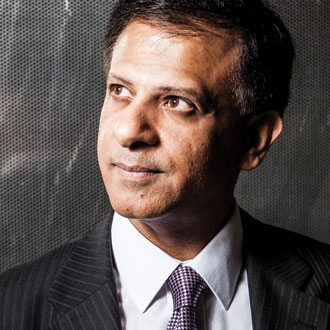Nine out of ten GPs think the ten-minute consultation standard is inadequate for patient care, the BMA’s biggest ever survey of the profession has found.
The BMA’s survey of nearly 16,000 grassroots GPs also found that two-thirds of GPs think longer, better quality consultations should be prioritised over the current drive to promote rapid access.
Both the Labour and Conservative parties have built their health strategies on pledges to improve access to general practice either through a 48 hour appointment standard, or seven day GP access for all patients.
But today’s results show GPs think other factors are more important, including: continuity of care (mentioned by 80% of GPs); trust and confidentiality between GP and patient (61%); and holistic care (51%).
The GPs surveyed said that longer appointments should be prioritised.
Around 67% of those surveyed said that consultations should be longer for certain patients, such as those with long-term conditions, and one in four said all patients should be able to have more than 10 minutes.
Only increasing core general practice funding (76%) and GP workforce (74%) were ranked above increasing consultation times as factors which would help GPs to do their job better.
Related stories
Pulse speaks with Prime Minister David Cameron
Hunt to tackle GP burnout by reviewing 10-minute appointments
PM’s seven-day access drive extended to 1,400 more GP practices
The RCGP has already urged politicians to be cautious about driving access at the expense of continuity, and GPC chair Chaand Nagpaul branded the access pledges and promises to boost GP workforce over the next five years as ‘hollow and unsubstantiated’ if GPs rank the quality of work they do as a greater priority.
The survey also shows GPs aren’t fundamentally opposed to the idea of extended hours opening, with 51% saying practices should offer some extended opening, and 21% saying this could be provided through more GP networks.
Dr Nagpaul said that, while ‘willing’ to consider extended access, when GPs were asked if their own practice could deliver ‘blanket’ seven day services, 94% felt this would be impossible.
Dr Nagpaul said: ‘This landmark poll highlights that GPs ability to care to patients is being seriously undermined by escalating workload, inadequate resourcing and unnecessary paperwork. Many GPs do not feel they have enough time to spend with their patients and that these intense pressures are beginning to damage local services.’
He added: ‘GPs also feel it is more important to provide longer consultations even if it means patients waiting longer to see a GP. And this comes at a time when politicians from all sides are making hollow and unsubstantiated pledges about dramatically increasing the number of GPs within five years, offering guaranteed appointments within 48 hours or funding Sunday opening when research shows those practices open in this period saw few patients booking an appointment.’
GP survey results
- Only 8% feel that the standard 10-minute consultation is adequate
- 67% feel there should be longer consultations for certain groups of patients, including those with long-term conditions
- 93% say that their heavy workload has had a negative impact on the quality of patient services
- 51% support individual practices offering some form of extended hours to patients
- 94% do not support seven-day opening, but one in five GPs (21%) suggested they may be able to do so by working in networks with other GPs through shared facilities
Source: BMA survey of 15,560 GPs

















